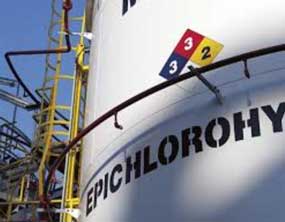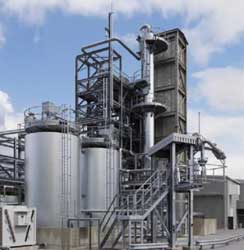Green tie-ups: AGC VinyThai collaborates with US uni/Allnex for biobased epoxies; Mura Tech/UK uni secure funding for recycling process

AGC Vinythai says 100% bio-based coatings are now one step closer as its research project with Prof. Mojgan Nejad at Michigan State University (MSU) moves into its next phase. For this second phase, the partners are joined by industrial coatings, resins and additives firm Allnex.
To increase the bio-based content of coatings and epoxy resins, AGC Vinythai worked with Prof. Nejad to explore the use of lignin as a bisphenol A (BPA) substitute for epoxy resin formulations. The results of this initial work were published in January 2021 in the paper ‘Choosing the right lignin to fully replace Bisphenol A in epoxy resin formulation’ in the ChemSusChem Journal ((https://doi.org/10.1002/cssc.202002729).
The second stage of the project started in November 2023 when Allnex also came on board. Allnex specialises in specialty polymers for industrial coatings, additives and composites, and is headquartered in Frankfurt, Germany.
Masayoshi Namba, Business Director, AGC Vinythai said, “Innovation and sustainability are key values for AGC Vinythai and Epinity is a leading example in our product portfolio. By working with partners, we are continuously improving the sustainability of our products.” Epinity is a bio-based Epichlorohydrin (ECH) mainly used as a precursor to epoxy resins.
Professor Mojgan Nejad from Michigan State University said, “We are thrilled to share the exciting collaboration between MSU, AGC Vinythai and Allnex to develop a bio-based epoxy coating. By completely replacing Bisphenol A with technical lignins and using bio-based epichlorohydrin from AGC Vinythai, we're paving the way for greener, more sustainable coatings.”
Florian Lunzer, Director, Strategic Research, allnex said, “As a leader of industrial coating resins, Allnex focusses on innovative chemistry to meet the needs of our customers and advance sustainability. We are pleased to collaborate with MSU and AGC Vinythai to bring lower carbon footprint and Bisphenol A free epoxy solutions to the markets we serve.”
The project is expected to run until October 2026.
AGC Vinythai Public Company Limited (AGC Vinythai) was established following the successful integration between AGC Chemicals (Thailand) Company Limited and Vinythai Public Company Limited.

Meanwhile in other news, Mura Technology has announced a continuation of the collaboration with WMG at the University of Warwick and Innovate UK (IUK) to continue their work on sustainability with a new IUK funded, two-year Knowledge Transfer Partnership (KTP).
WMG will develop operational sustainability models for Mura’s Hydro-PRT advanced plastic recycling technology to identify opportunities for further improvements to the environmental performance of the process. Mura has already identified an annual carbon emissions saving of 40,000 tonnes at the first Hydro-PRT site in Wilton, Teesside, due to commence operations in 2024.
Mura Technology is an advanced recycler of waste plastics, producing fossil-equivalent recycled hydrocarbon feedstocks from post-use, mixed, multi-layered flexible and rigid plastics for the petrochemicals industry to create virgin-grade plastics, such as for use in food packaging.
Mura’s patented, innovative next generation processing technology, Hydro-PRT, produces high quality hydrocarbon feedstocks with sector-leading sustainability attributes, creating a low carbon and circular model for a range of stakeholders working with polymers.
The company’s first commercial scale plant, at Wilton, Teesside, will become the world’s largest advanced recycling plant when it commences operations later this year, with two further plants being built under licence with partners in South Korea and Japan, expected to come online by the end of 2024.
Driven by increasing regulation on plastic waste, Mura has a global growth ambition for more than 1.5 million tonnes of recycling capacity in operation or development by 2032.
WMG will create a modelling platform that will operationalise sustainability at all future Mura project sites, including Life Cycle Assessments (LCAs), to demonstrate transparently how Hydro-PRT meets environmental requirements. The platform will be used to educate and inform stakeholders including global regulators, policy makers and the plastics value chain on the low carbon potential of Hydro-PRT.
The KTP is the continuation of the IUK Smart Sustainable Plastic Packaging research partnership, where Reader of Sustainable Materials and Manufacturing at WMG, University of Warwick, Dr Stuart Coles successfully developed and published Life Cycle Analysis models, independent of Mura, for the Hydro-PRT process and the UK waste plastic recycling ecosystem. Dr Coles will also be the academic lead on this project.
(PRA)SUBSCRIBE to Get the Latest Updates from PRA Click Here»








